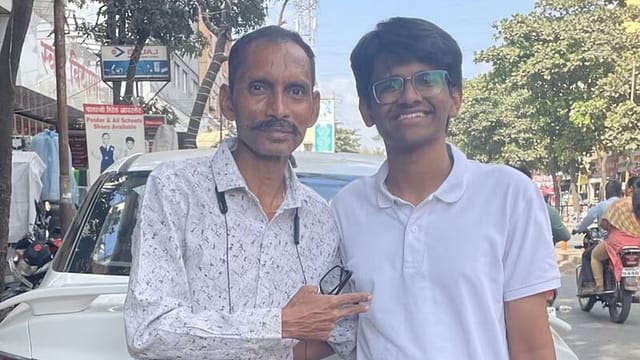A Goregaon, Mumbai based retired banker couple recently became victims of an elaborate cyber fraud, losing their entire life savings of ₹1.33 crore. The scammers kept the couple under a so-called “digital arrest” for ten days, isolating them from family and friends, before the woman discovered a newspaper report about a similar scam and alerted the police.
How the Fraud Unfolded
The ordeal began in Mumbai early November when the woman, a retired bank employee, received a call from an individual claiming to represent the Reserve Bank of India (RBI). She was falsely accused of involvement in a ₹500-crore money laundering and terrorism case, which panicked her into compliance.
To intensify the fear, the fraudsters issued fake bank notices and connected her to another impersonator posing as a Hyderabad police officer. The scammers then coerced her into remaining on continuous video calls, a tactic dubbed “digital arrest,” to monitor her actions. During this time, they manipulated her into transferring her savings to purported “safe accounts.”
Life Savings Drained
Over ten days, the scammers systematically siphoned off ₹1.33 crore from her accounts. On November 19, when the woman attempted to break a ₹35-lakh fixed deposit as instructed, her bank delayed the process due to staff shortages during state elections. This delay turned out to be a saving grace, as she stumbled upon a newspaper article detailing similar fraud cases. Realizing the scam, she immediately contacted the 1930 cybercrime helpline and approached the North Cyber Cell of the Mumbai Police.
What Is a ‘Digital Arrest’?
The concept of a “digital arrest” is a growing tactic employed by cybercriminals. Fraudsters isolate victims by keeping them under constant surveillance via video calls, ensuring they cannot seek advice or intervention. Often, they impersonate officials from agencies like the police, CBI, RBI, or ED to lend credibility to their demands.
Rising Trend of Cyber Frauds
According to data from the Mumbai Cyber Cell, 102 cases of “digital arrest” scams have been reported in 2024 alone, involving a total of over ₹90 crore. Shockingly, only 16 cases have been resolved so far. This data pertains to fraud cases exceeding ₹10 lakh, with smaller-scale scams being handled by local police.
Senior police officials warn that senior citizens, particularly those living alone or with limited social interactions, are at high risk. Many victims hesitate to report such cases out of fear or embarrassment, allowing criminals to continue their operations unchecked.
Government and Police Response
The rising cases of cyber fraud have caught the attention of top government officials, including Prime Minister Narendra Modi and Home Minister Amit Shah. Public awareness campaigns, including mentions on popular shows like Kaun Banega Crorepati, aim to educate citizens on identifying and avoiding such scams.
Senior PI Suvarna Shinde of the North Cyber Cell stated, “No police force in the country enforces a digital arrest or sends arrest warrants through WhatsApp. Citizens must immediately report such incidents to the police or the cybercrime helpline.”
Preventive Measures for Citizens
- Be Alert to Fake Calls: Legitimate authorities like RBI or police will not demand personal information or money over calls.
- Verify Credentials: Always cross-check with local police if approached by someone claiming to be from law enforcement.
- Use Official Helplines: Report suspicious activity to the 1930 cybercrime helpline or via National Cybercrime Reporting Portal.
- Golden Hours: Acting within two hours of fraudulent transactions increases the likelihood of recovering lost funds.
Conclusion
The Goregaon couple ’s case highlights the sophisticated tactics used by cybercriminals and the urgent need for increased vigilance. Educating senior citizens about these frauds is crucial, as is reporting such crimes promptly to prevent further victimization.
This news report is curated with insights from multiple reliable news sources.



















